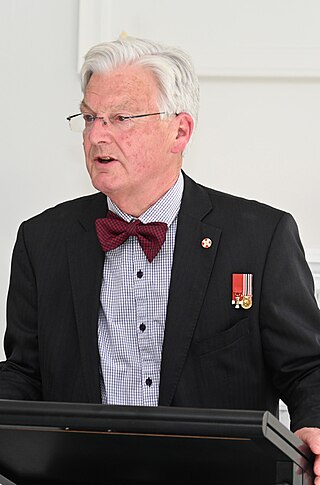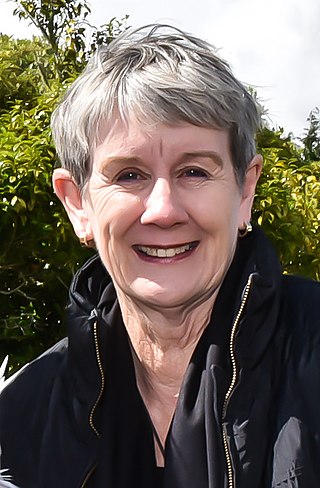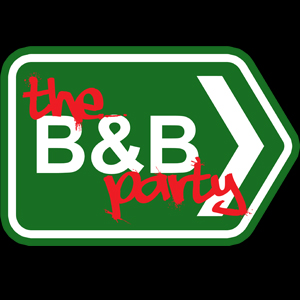New Zealand First, commonly abbreviated to NZ First or NZF, is a political party in New Zealand, founded and led by Winston Peters, who has served three times as deputy prime minister. The party has formed coalition governments with both major political parties in New Zealand: with the New Zealand National Party from 1996 to 1998 and 2023 to present, and with the New Zealand Labour Party from 2005 to 2008 and 2017 to 2020. New Zealand First currently serves in a coalition government with both National and ACT New Zealand as part of the Sixth National government, having won 6.08% of the total party vote in the 2023 New Zealand general election.
United Future New Zealand, usually known as United Future, was a centrist political party in New Zealand. The party was in government between 2005 and 2017, first alongside Labour (2005–2008) and then supporting National (2008–2017).

Peter Francis Dunne is a retired New Zealand politician who was the Member of Parliament (MP) for Ōhāriu. He held the seat and its predecessors from 1984 to 2017 – representing the Labour Party in Parliament from 1984 to 1994, and a succession of minor centrist parties from 1994. He was the Leader of Future New Zealand from 1994 to 1995, United New Zealand from 1996 to 2000, and United Future from 2000 to 2017.

Destiny New Zealand was a Christian political party in New Zealand centred on the charismatic/pentecostal Destiny Church. The party described itself as "centre-right". It placed a strong focus on socially conservative values and argued that the breakdown of the traditional family was a primary cause of many of New Zealand's problems. It announced its de-registration as a political party on 18 September 2007, and was removed from the register a month later. It did not hold any seats in Parliament.
Larry David Baldock is a New Zealand politician. Before entering national politics, he was involved with Youth With A Mission and spent 15 years living in the Philippines. After returning to New Zealand in 1996, he joined Future New Zealand in 1999, standing as a candidate in the Tauranga electorate at that year's general election. In 2001, he was elected to the Tauranga City Council, and served as a list MP for United Future New Zealand from 2002 to 2005.

Gordon Frank Copeland was a New Zealand politician who served as a Member of Parliament from 2002 to 2008. He entered the House of Representatives as a list MP for the United Future New Zealand Party from 2002 but he resigned from the party in 2007. In March 2009, Copeland became Party President of The Kiwi Party, which he had co-founded with another former United Future list MP, Larry Baldock, in May 2007. Copeland stood for the Conservative Party in the 2011 New Zealand general election. Prior to entering Parliament he held a number of corporate positions before working as the financial administrator for the Roman Catholic Archdiocese of Wellington.

Judith Anne Turner is a New Zealand politician who was the deputy leader of United Future New Zealand. She was a member of the New Zealand House of Representatives as a list MP from 2002 to 2008, and the mayor of Whakatāne from 2019 to 2022.

The 48th New Zealand Parliament was a term of the Parliament of New Zealand. Its composition was determined at a general election held on 17 September 2005. The new parliament met for the first time on 7 November 2005. It was dissolved on 3 October 2008.

The 2008 New Zealand general election was held on 8 November 2008 to determine the composition of the 49th New Zealand Parliament. The liberal-conservative National Party, headed by its parliamentary leader John Key, won the largest share of votes and seats, ending nine years of government by the social-democratic Labour Party, led by Helen Clark. Key announced a week later that he would lead a National minority government with confidence-and-supply support from the ACT, United Future and Māori parties. The Governor-General swore Key in as New Zealand's 38th Prime Minister on 19 November 2008. This marked the beginning of the Fifth National Government which governed for the next nine years, until the 2017 general election, when a government was formed between the Labour and New Zealand First parties, with support on confidence and supply by the Green Party.

The Crimes Amendment Act 2007 is an amendment to New Zealand's Crimes Act 1961 which removed the legal defence of "reasonable force" for parents prosecuted for assault on their children.

Coromandel is a New Zealand electoral division returning one member to the House of Representatives. It is currently represented by Scott Simpson, a member of the National Party.

Tauranga is a New Zealand parliamentary electorate, returning one Member of Parliament to the New Zealand House of Representatives. The current MP for Tauranga is Sam Uffindell of the National Party, who won the seat in the 2022 Tauranga by-election, following the resignation of the previous MP, Simon Bridges of the National Party.

The Family Party was a political party in New Zealand. It described itself as a Christian party.
Seventy of the one hundred and twenty members of the New Zealand House of Representatives elected in New Zealand's 2008 general election will be from single member constituencies, an increase of one electorate seat from 2005. The initial composition of the 2005 Parliament gave the Labour and National parties each 31 constituencies, the Māori Party four and ACT, United Future and the Progressive Party one each.

The Bill and Ben Party was a New Zealand joke political party formed in 2008 and voluntarily deregistered in 2010. The party's leaders were Jamie Linehan and Ben Boyce of the TV3 satirical sports show Pulp Sport. In the 2008 general election the party secured 0.56% of the vote, outpolling every other party not in parliament prior to the election. It gained the ninth-highest number of votes out of the 19 parties standing for election.

The 2011 New Zealand general election took place on Saturday 26 November 2011 to determine the membership of the 50th New Zealand Parliament.

The 2009 New Zealand Referendum on Child Discipline was held from 31 July to 21 August, and was a citizens-initiated referendum on parental corporal punishment. It asked:
Should a smack as part of good parental correction be a criminal offence in New Zealand?

The 2014 New Zealand general election took place on Saturday 20 September 2014 to determine the membership of the 51st New Zealand Parliament.

New Conservatives is a conservative political party in New Zealand. Some opponents and observers have described the party's policies as far-right, though the party now states it has moved to a "more centrist" position under new leadership. It advocates for lower taxation, anti-abortion measures and austerity cuts.

Angela Maree Warren-Clark is a New Zealand politician and former Member of Parliament in the House of Representatives for the Labour Party.


















